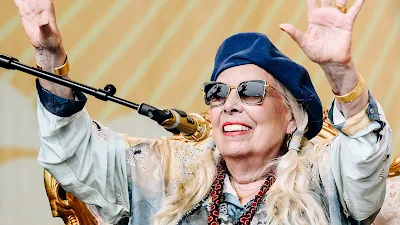The Kowinski family that I am part of seems to have begun in America with my great-grandparents. John Kolachinski (who went by various names in the U.S., soon settling on John Kowinsky) came to work in western Pennsylvania coal mines, probably from the impoverished and oppressed region of Silesia in southern Poland, in about 1890. He was likely in Scottdale, PA during one of the worst mining accidents of the era, killing at least 100 Polish, Italian and other immigrant miners.
One of John's children, Frank Kowinsky was my grandfather. He married Catherine Ellis, whose father John Ellis had arrived in America and western Pennsylvania at about the same time as John Kowinsky. John Ellis (originally Ilas) came from somewhere in the Austrian-Hungarian empire of eastern Europe which include part of Poland and Slovakia, while his wife had a lineage originating in Ukraine.
Both my paternal great-grandfathers were in the coal fields for the tumultuous Westmoreland County coal strike of 1910-1911—also known as the Slovak Strike because more than two-thirds of the miners were Slovak. It involved 65 mines and 15,000 coal miners. As would happen again, mine owners used private police and thugs as well as the state and local police and courts to break the strike, which they did, with defeat for the miners. Sixteen miners or members of their family were killed. Families were thrown out of their lodgings and had no money for food.
There was a larger, more successful national United Mineworkers coal strike in 1919 that involved 100,000 Pennsylvania miners, but industry owners tried to cut the agreed-upon wages in 1922, resulting in another strike. By this time, my grandparents Frank and Catherine were married, and my father Walter had been born. Again, families were left homeless. Two of my great-grandparents and their family were living in a tent until winter cold forced them to improvise shelter in an abandoned pool room with several other families. This strike eventually won back the wage levels of 1919.
Attempts to break strikes and prevent organizing were relentless. In high school I was shown an empty valley where a coal patch town had once existed, with searchlights ringing it so owners could spot when workers moved between houses to attend union organizing meetings.
The Depression of the 1930s hit this area very hard, but in Washington the Roosevelt administration was convinced that to end the Depression required a countervailing force to huge companies in a time of immense disparities in incomes. Labor union rights were strengthened by law, and over the next decades, national unions became that force. Better wages, hours and working conditions helped fuel shared prosperity.
By the time I was in high school in the early 1960s, unions comprised an institutional force alongside government and private industry. Unions became a progressive force and through their political arms, a big factor in elections. Though in practice many individual unions discriminated, the major union organizations supported diversity, and were among the chief sponsors of the 1963 Civil Rights March on Washington.
The moral authority of unions was weakened by instances of corruption, and then by union support for the Vietnam War, which alienated the young and some minorities. Then in the mid to late 1970s, steel mills began to close, and industries moved employment away from the U.S. With membership dwindling, the Reagan administration in the 1980s dealt unions a series of death blows. Today the percentage of union members in the workforce is tiny.
Also today, in another era of massive income disparities, there are the same patterns of unionizing and company resistance at Amazon, Starbucks and other new corporate giants. Meanwhile, unions have grown in the public sector of the economy. In both cases, the actual and prospective union members tend to be more female and non-White.
Now the descendants of those European immigrants that suffered for the first labor unions, and the proud union members of the era of union strength, are left without an advocate, an organization looking out for their interests, a place to go to discuss issues, to listen and to be heard. Even just a union hall bar to let off steam, talk about their families and look each other in the face. They have no collective power to counter the massive power of corporations and the rich, which includes the power to secretly manipulate the information they receive.
Instead they have the Internet, where they get their information courtesy of trolls and bots and algorithms that feed them vast quantities of the same tenor of elaborately presented shameless lying--so much of it that it seems it must be true. There is no countervailing voice to the corporate interests that fund efforts to blame others for the results of corporate decisions, such as immigrants, minorities, or scientists and self-serving, pointy-headed intellectuals. Instead of collective and constructive action, they are encouraged to wallow in anger and misplaced rancor, racism and closets of military weaponry, and the thrill of "owning the libs," as fleeting and addictive as a cocaine high. Their participation is limited to seeing who can attract attention by being the shrillest and most provocative, unless until some of them brought their smartphones to an Insurrection on Capitol Hill.
It only gets said on Labor Day if at all, but the American system is broken in large measure because of the gaping hole left in social and economic institutions by the demise of unions. It's no coincidence that the democracy that President Joe Biden extolled and declared threatened, flourished in his lifetime when unions were strong, and a vital part of that democracy.














